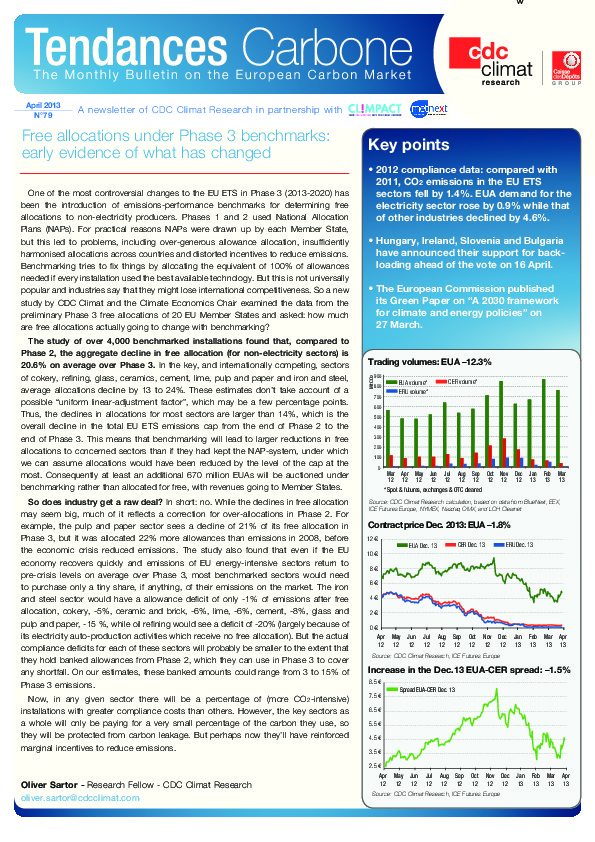Free allocations under Phase 3 benchmarks: early evidence of what has changed
One of the most controversial changes to the EU ETS in Phase 3 (2013-2020) has been the introduction of emissions-performance benchmarks for determining free allocations to non-electricity producers.
Phases 1 and 2 used National Allocation Plans (NAPs). For practical reasons NAPs were drawn up by each Member State, but this led to problems, including over-generous allowance allocation, insufficiently harmonised allocations across countries and distorted incentives to reduce emissions.
Benchmarking tries to fix things by allocating the equivalent of 100% of allowances needed if every installation used the best available technology. But this is not universally popular and industries say that they might lose international competitiveness.
So a new study by I4CE and the Climate Economics Chair examined the data from the preliminary Phase 3 free allocations of 20 EU Member States and asked: how much are free allocations actually going to change with benchmarking?
